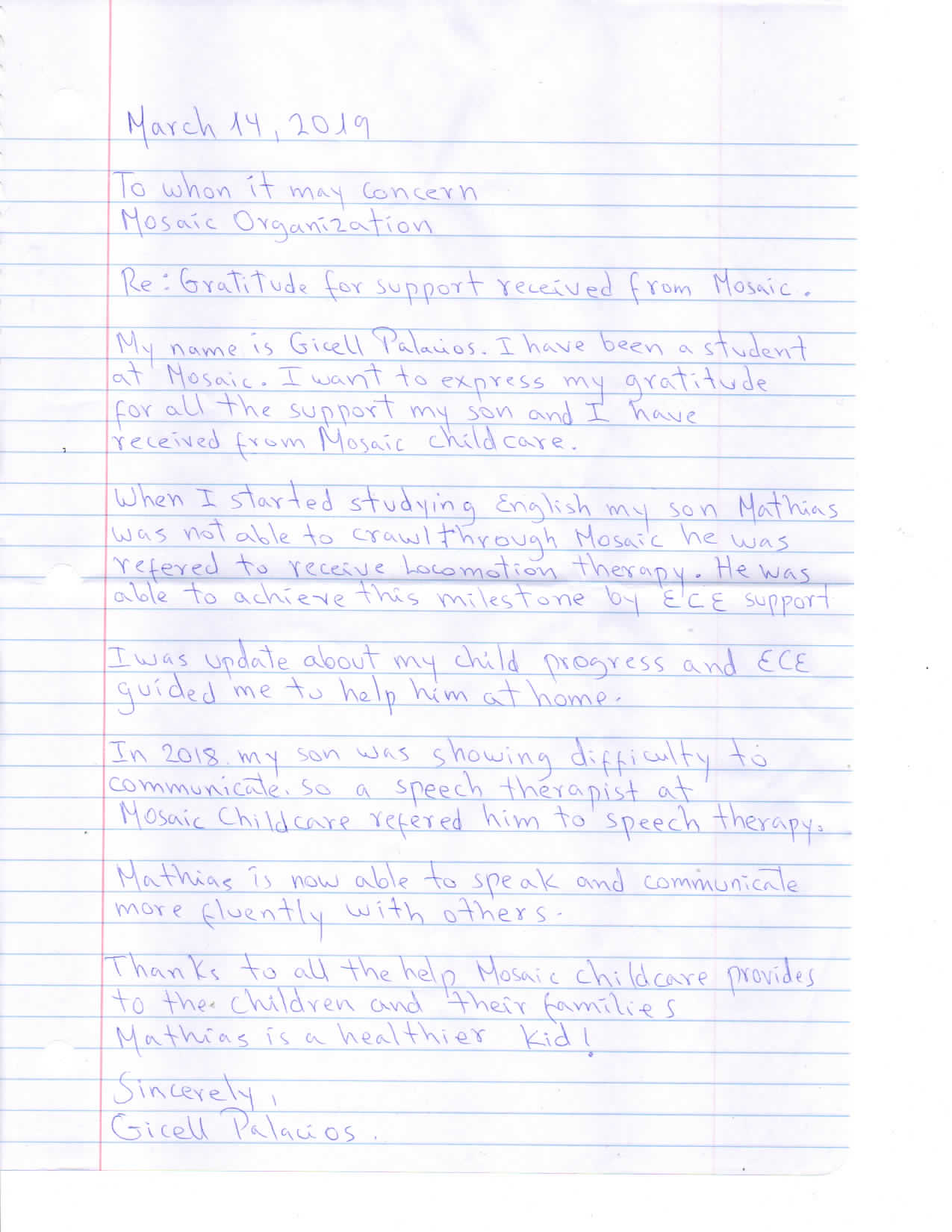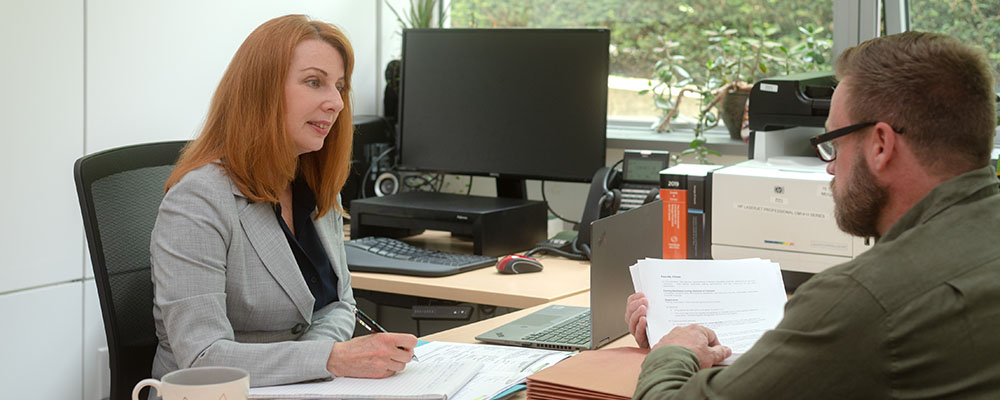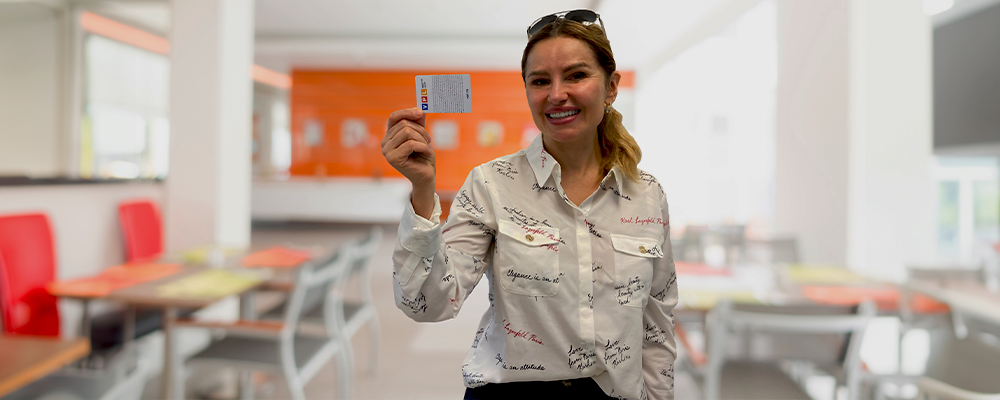Parents of young kids already have their hands full, but when you’re a newcomer to Canada and your child has special needs, it can be especially challenging. We recently heard from two mothers who wanted to share their appreciation for the support they received from MOSAIC staff.
MOSAIC Language Instruction for Newcomers (LINC) Childcare Educators are well trained and board-certified through the Ministry of Child & Family Development and the ECE Registry. Our Educators keep themselves current in the field by attending annual ECEBC conferences, in-house workshops, and interdisciplinary meetings.
Childcare Educators plan and implement daily activities for the children in their care based on the BC Early Framework (BC ELFW) and note children’s developmental growth throughout the year and to identify gaps in children’s milestones. Should anything be flagged, Educators curate personalized care-plans to best address the child’s social, emotional, physical or intellectual needs.
MOSAIC is proud of its group of Educators, Including, but certainly not limited to ECE and post basic, Infant and toddler, special needs.
For the past 10 or so years, MOSAIC childcare has been led by a Nadia Rabierad, who has a background in clinical psychology and a passion for early childhood education.
Ouardia Bouadjela is a former MOSAIC client who now volunteers with childcare services and provides language support for Arabic-speaking clients. Ouardia has two children whose needs were identified by MOSAIC educators and were referred to the proper organizations for support and funding.
Ouardia is sharing her story in order to help raise awareness for special needs kids and to promote the work of MOSAIC’s Language Instruction for Newcomers’ childcare services.
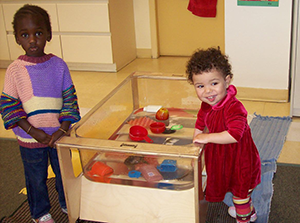 In Ourdia’s own words…
In Ourdia’s own words…
It feels like it was just yesterday when my son and I moved to Canada, My little baby boy Amnay learned a lot in MOSAIC when he was just 2 years old, My neighbour told me about MOSAIC. I saw it as a opportunity for me to learn English and also at the same time my son Amnay can go to daycare.
In the beginning I have to admit It wasn’t easy for the both of us but look at us now we made it,
Where I come from our teaching methods are way more different than in Canada, But it really helped Amnay. Growing up for Amnay wasn’t that easy he had trouble communicating with people in general he would get in fights and had difficulty concentrating and in general making friends but he was lucky that the educators were very qualified and helped by offering Amnay special treatment and modifying activities daily and will show Amnay how to hold scissors properly,
I am really grateful for them fo helping Amnay with his many issues and they quickly found out that Amnay was diagnosed with ADHD it is a concentration disorder which makes the child not pay attention to things and can easily get distracted, and we know that Amnay is going to have to live with it for the rest of his life and it’s not something that can get cured with medication or medical treatment we just have to accept Amnay for the way he is.
I also have a lovely little girl named Sarah, she was unlike Amnay, she wasn’t born in Algeria, I always had a feeling that my second child would be a little baby girl just like Amnay she also went to MOSAIC and their daycare, in the beginning everything was normal until we noticed some problems with her neck, then daycare called in one day and said that they had a nurse come in to check on Sarah and the nurse said that Sarah would have to go through physiotherapy but that’s only the beginning of our problems we later found out that Sarah had autism and a rare genetic disorder, unlike Amnay we didn’t get over it as fast as we did we still can’t believe that our little baby girl is going to be like this for the rest of her life even if we don’t like it we still love her the way she is, the educator’s help Sarah a lot when she was little they would cook for her and help her with her walking and eating solid food but she still doesn’t eat solids but one day I know she is my little girl and I will always love her the way she is.
Other special needs kids in the LINC Childcare program were assisted and have shown marked improvement and progress, as related by Nadia Rabierad.
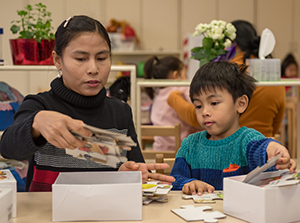 Child T
Child T
In October 2015, a 17-month Burmese boy began our toddler program. At the time, he was unresponsive and would make no eye contact. He was language delayed and showed no facial expressions. His mother shared that he would repeatedly hit his forehead against the floor at home and was fascinated solely by trains and cars. He would otherwise lay on the carpet and would be totally disengaged with his surroundings.
Despite his parent’s initial reluctance, the child was successfully referred to the BC Center for Ability (BCCFA), where he was later diagnosed with autism. With the diagnosis and modification, he began to show signs of improvement and began playing with his peers. He can now echo-back some sentences and is in the process of transitioning to kindergarten.
Both the family and child have been receiving aid from the BCCFA, a Vancouver Coastal Health Speech Pathologist and the Ministry’ of Children and Family Development’s Special Needs program. At the childcare, we have modified the programming with the input of other professionals and have curated a Care Plan and CFSP Child – Family Support Plan) to expedite his progress.
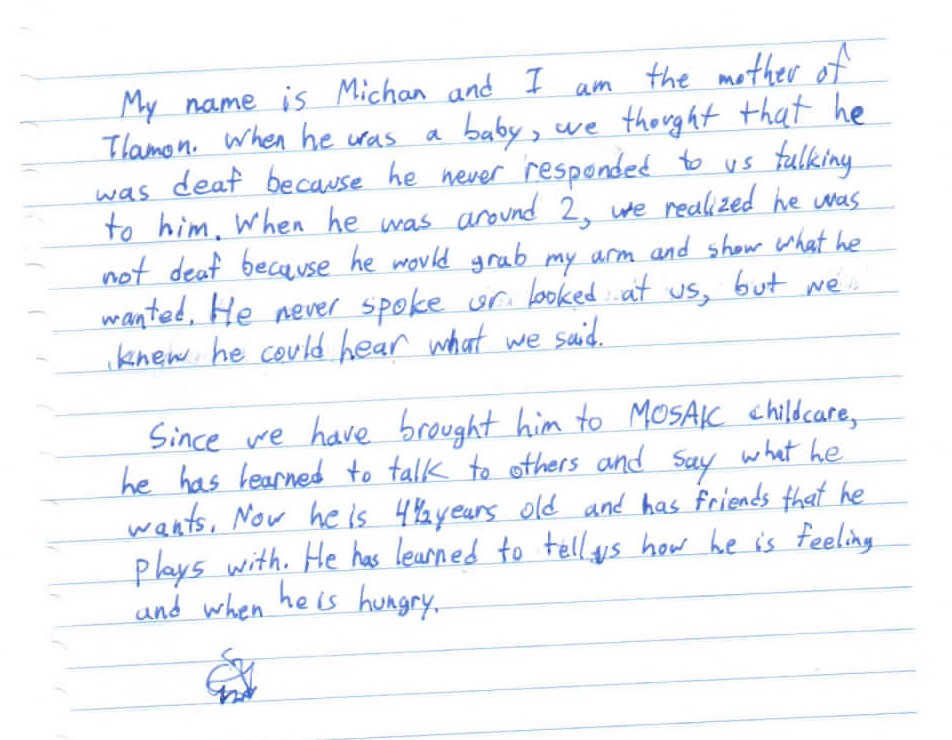
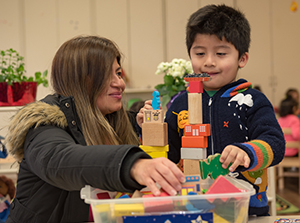 Child M
Child M
In 2014, a 14 month-old Peruvian boy began our toddler program. At the time of registration, the child suffered from weak muscle movement and was unable to crawl, let alone walk.
The child was then referred to the BCCFA for occupational therapy. ECE worked collaboratively with the Occupational therapist who modified physical activities for the ease of the Child M. Along with his mobility concerns, the child also had communication difficulties. After having seen an occupational therapist, the child was referred to a registered Speech Pathologist for rehabilitation and received modified programming based on both the CFSP and Care Plan. The child is now able to communicate verbally and is physically independent.
